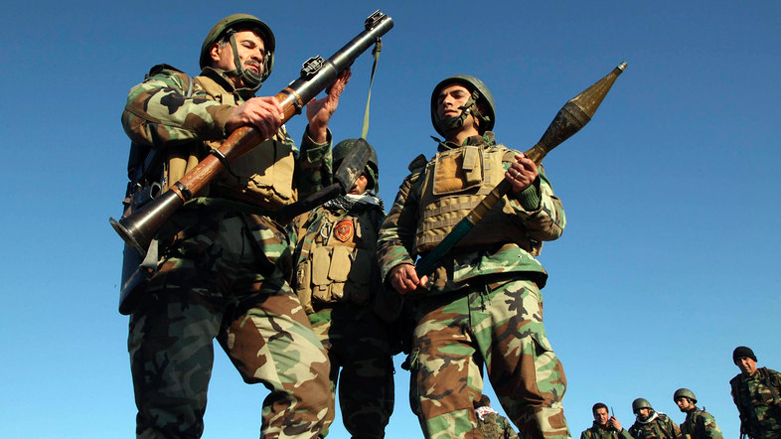Pentagon Inspector General: Solving Erbil-Baghdad tensions key to prevent IS insurgency

ERBIL (Kurdistan 24) – Ongoing tensions between the Iraqi Security Forces (ISF) and the Kurdish Peshmerga hamper the fight against the so-called Islamic State (IS), a Defense Department inspector general report to the US Congress said on Monday.
“Since the September 2017 Kurdistan independence referendum, resolving the disputes between the Kurdistan Region and the central government has been a key to Iraq’s future and could help confront or prevent an [IS] insurgency,” the report noted.
“The stability of [the Kurdistan Region] remains of central importance to a stable, unified, and prosperous Iraq.”
However, there has been a slight improvement in Erbil-Baghdad relations. For the first time in July, the ISF and Peshmerga carried out “their first joint clearing operation since clashes broke out between them following the September 2017 referendum,” the report noted.
Although the Pentagon believes the success of the operation potentially lays the groundwork for future joint offensives, “other indicators [point] to ongoing tensions between the two forces,” the report said.
For instance, in July, the Peshmerga rejected a request from the Iraqi military to operate against IS in Kurdish-controlled areas near Kirkuk, it added.
There are also accounts of Iraqi security abuses against Kurdish forces. Moreover, Kurdish officers have told journalists their troops are often unable to pursue IS fighters because they take refuge in the buffer zone between ISF and Peshmerga front lines, which run south of the Kurdistan Region.
Nevertheless, the Pentagon confirms that the Peshmerga made “significant contributions to the United States-led campaign to degrade, dismantle, and ultimately defeat IS.”
During the 2018 MERI Forum in October, Jabbar Yawar, Peshmerga Secretary-General, asked EU diplomats how to improve the relationship between Kurdish and Iraqi forces after the Oct. 16, 2017, events when Iraqi troops took disputed territories by force from the Peshmerga who defended those areas from IS.
“We have a 1,000-kilometer front line between us and Iraqi forces,” he said, adding that there is no mechanism to solve these tensions. “This will affect the stability [of the region].”
EU diplomats, meanwhile, emphasize the need for Baghdad and Erbil to work together.
Eric Strating, Dutch Deputy Head of Mission in Baghdad, said the Iraqi government and the Kurdistan Regional Government (KRG) should create a model for cooperation.
“Obviously, for the stability of Iraq, it’s essential that Erbil and Baghdad work out a model where they work together very constructively and avoid all sorts of conflicts,” Strating explained.
“Of course, an arrangement between the military sides would be part of that.”
Bruno Pasquino, Italy’s Ambassador to Iraq, noted that “Italy is the second-largest contributor in terms of men and women [in Iraq] since 2014.”
“The Alpha and Omega for our presence here is that you must work together, full stop,” he concluded.
According to Maxwell B. Markusen, CSIS Associate Director and Associate Fellow, “the lack of cooperation between Peshmerga and ISF [are] one of the biggest challenges to a lasting defeat of IS in Iraq.”
Michael Knights, an analyst at the Washington Institute, told Kurdistan 24 the “ISF and Peshmerga [have] a minimally cooperative relationship, as one would expect from forces that were engaging in high-intensity combat with each other a year ago.”
“The solution is to form new joint units – such as a new Federal Police or army brigade for Makhmour, say – as opposed to trying to get Kurdish and Iraqi units to work in each other’s areas,” he added.
Knights also predicted that “the permanent reduction of IS to a small, limited security threat will take until the mid-2020s at the current rate.”
He said the campaign against the extremist group would move at a faster pace if the Iraqi government rebuilds its Counter-Terrorism Service and cooperates with Erbil.
Or, the IS operation can move “slower if Baghdad removes good officers and lets corruption and militias take over the counterinsurgency,” Knights concluded.
Editing by Karzan Sulaivany
